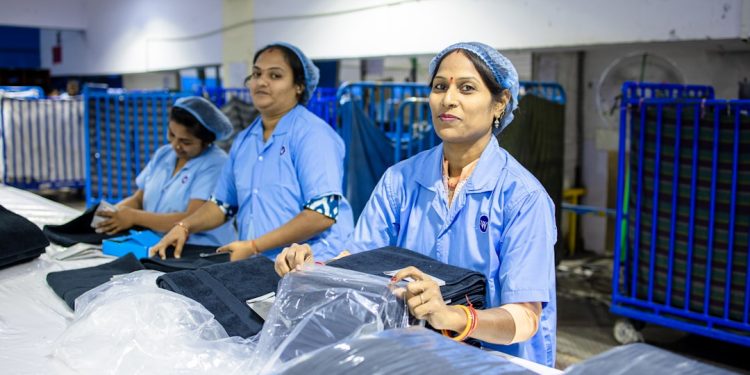No products in the cart.
SBI’s Ambitious Plan: 30% Female Workforce Goal by 2030
SBI is targeting a 30% female workforce by 2030, enhancing inclusion and health initiatives in the banking sector.
Mumbai, India — The State Bank of India (SBI) has set a groundbreaking target to achieve a 30% female workforce by 2030. As part of its comprehensive strategy, the bank is stepping up initiatives focused on gender inclusion and health, aiming to reshape the banking landscape in India.
With women comprising only 22% of its current workforce, SBI recognizes the need for a transformative approach. This ambitious initiative is not just about numbers; it reflects a broader commitment to diversity and inclusion in a sector historically dominated by men.

SBI’s decision aligns with global trends emphasizing the importance of gender diversity in the workplace. Studies have consistently shown that companies with diverse teams outperform their peers, particularly in financial performance and innovation. According to a 2020 McKinsey report, organizations in the top quartile for gender diversity on executive teams are 25% more likely to experience above-average profitability compared to those in the bottom quartile.
 Business
BusinessSandeep Kumar Gupta: A Leader in Business Sustainability
Sandeep Kumar Gupta, CMD of GAIL, has been honored with the Mahatma Award 2025 for his impactful leadership in sustainability.…
In response to these insights, SBI is implementing a multi-faceted approach to attract and retain female talent. Initiatives include flexible work arrangements, mentorship programs, and targeted recruitment strategies aimed at women. These measures are designed to create a supportive environment that fosters professional growth and development.
These measures are designed to create a supportive environment that fosters professional growth and development.
Moreover, the bank is investing in health initiatives tailored for its employees, recognizing that well-being directly correlates with productivity and job satisfaction. Programs include regular health check-ups, wellness workshops, and mental health support, which are crucial for sustaining a diverse workforce.
The focus on health is indicative of a growing trend in corporate environments, where organizations are acknowledging the importance of employee well-being as a critical factor for success. According to a survey by the World Health Organization, every dollar invested in mental health initiatives yields a return of $4 in improved health and productivity.
As SBI takes these steps, it joins other industry leaders in promoting gender equity. For instance, HDFC Bank has also launched initiatives to increase the representation of women in its workforce, aiming for 50% in leadership roles by 2025. Such commitments are not merely aspirational; they are essential for the sustainability of India’s financial institutions.
 Education
EducationBeyond Homework: Rethinking Education for the Modern World
Education systems are at a turning point, with global trends and policies like India’s NEP 2020 advocating for critical thinking,…
Read More →Critically, the success of SBI’s initiative will depend on its ability to measure and report progress transparently. Stakeholders, including investors and customers, are increasingly demanding accountability in diversity initiatives. Regular assessments and public disclosures will be vital for maintaining trust and credibility.
Furthermore, the Indian government’s push for women’s empowerment through policies like the Beti Bachao Beti Padhao scheme highlights a supportive regulatory environment for such initiatives. This alignment between corporate goals and government policy could amplify the impact of SBI’s efforts, fostering a more inclusive workplace across the banking sector.
For instance, HDFC Bank has also launched initiatives to increase the representation of women in its workforce, aiming for 50% in leadership roles by 2025.
Looking ahead, the real test for SBI will be in its execution. Achieving a 30% female workforce by 2030 is ambitious, but with a strategic approach and commitment to inclusivity, it could set a precedent for other organizations. The banking sector stands at a crossroads, where the integration of gender diversity and employee health can redefine success.
 Artificial Intelligence
Artificial IntelligenceAI Innovations at GITEX Global 2025: Shaping Enterprise Software Development
GITEX Global 2025 in Dubai showcases groundbreaking AI advancements for enterprise software development, crucial for businesses navigating digital transformation.
Read More →As other companies observe SBI’s journey, there exists a unique opportunity for a ripple effect across industries. By prioritizing gender equity and employee well-being, businesses can unlock new levels of innovation and productivity, ultimately shaping a more equitable future.











